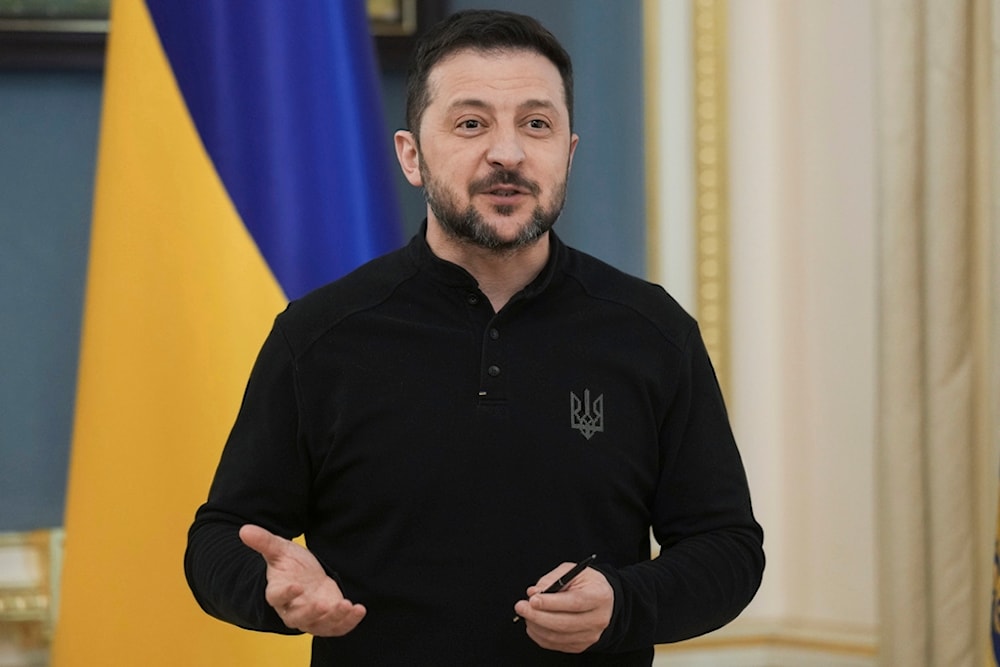US-Ukraine resource deal sparks sovereignty fears, EU alarm
The draft agreement, negotiated behind closed doors, outlines the creation of a joint investment fund that would give the US considerable authority over Ukraine's oil, gas, mineral, and infrastructure sectors.
-

Ukrainian President Volodymyr Zelenskyy speaks during a briefing in Kyiv, Ukraine, Friday, March 28, 2025 (AP Photo/str)
A proposed economic agreement between the United States and Ukraine is drawing sharp criticism from Ukrainian lawmakers and analysts, who warn that the deal could dramatically reshape the country's sovereignty over its natural resources.
The draft agreement, negotiated behind closed doors, outlines the creation of a joint investment fund that would give the US considerable authority over Ukraine's oil, gas, mineral, and infrastructure sectors. Under the plan, the fund would be legally registered in Delaware and operate under New York jurisdiction, granting Washington significant oversight, including the right to veto resource sales and inspect Ukrainian agency accounts. The fund's board would include three US-appointed members.
In financial terms, the United States would claim all revenues generated until Ukraine repays $100 billion—plus 4% interest. Only after this debt is cleared would profits be shared equally. Although earlier discussions reportedly involved a $500 billion figure, the updated draft leaves the total investment undefined, raising concerns about long-term liabilities and transparency.
According to Reuters and The Times, the US has also pushed for exclusive rights to invest in strategic Ukrainian industries, raising fears among EU officials that such preferential treatment could clash with Ukraine's aspirations to join the European Union, where market competition rules are stricter. The deal does not appear to offer Ukraine any firm security guarantees in return.
Read more: Ukraine-US minerals deal open-ended, no security guarantees: Rada off.
Some Ukrainian officials have likened the proposed terms to "economic colonization," arguing that it could trap the country in a cycle of dependency. Skeptics also point out the technical and financial obstacles tied to developing Ukraine's rare earth and energy sectors—many of which require massive upfront investments and up-to-date geological data.
On a related note, European leaders have pledged to strengthen Ukraine's military capabilities to ensure its security. French President Emmanuel Macron recently pledged an additional €2 billion in military support, while leaders from around 30 countries discussed long-term commitments to Ukraine's defense and recovery.
Among the proposals was the creation of a "reassurance force"—a potential future deployment of foreign troops behind the front lines to offer security guarantees as part of a peace agreement with Russia.

 3 Min Read
3 Min Read









